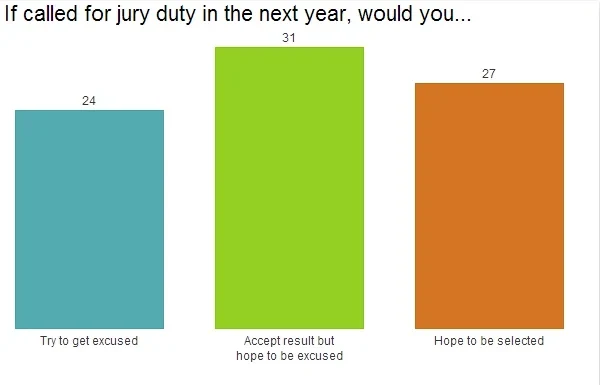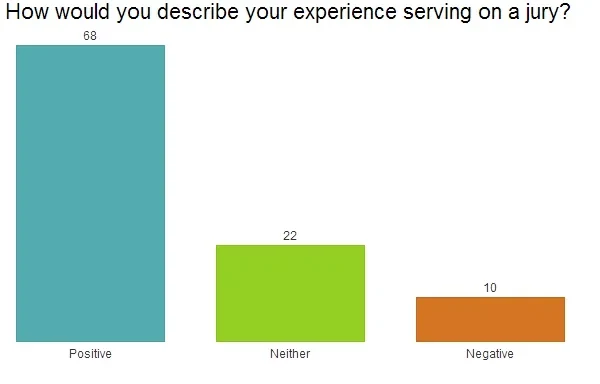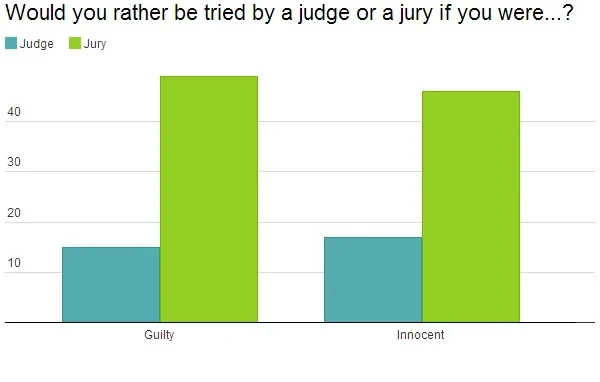Most Americans are reluctant to do jury duty but among those who have the overwhelming majority judge the experience to be positive.
Trial by jury is one of the more distinctive American institutions. In most other countries around the world - including the UK, the ancestor to much of America's legal system - trial by juries are reserved for only the severest of crimes. But across most of the US jury trials are used for many, if not all, criminal and civil cases. Everyone is liable for jury service, even such recognizable figures as Tom Hanks, who recently was at the center of jury tampering allegations after a prosecutor at a domestic abuse case in California approached the star to thank him for doing jury duty, even though rules strictly prohibit interaction between jurors and other people involved in the trial.
The latest YouGov research shows that most Americans are somewhat reluctant to serve on juries, with 24% saying that they would try to get excused. 31% say that they would not try to get excused but would still quietly hope that they were not selected for a jury while only 27% say that they would hope to be selected for a jury. Interestingly, people in the Northeast (32%) are the most likely to try and get out of jury service while those in the Midwest (21%) are the least likely.

Despite the wider reluctance to serve on a jury, among the quarter of Americans who have performed jury duty a large majority say that the experience was positive. 68% described their experience as positive, while 22% were ambivalent and only 10% said that the experience was a negative one.

Many Americans generally support the idea of a trial by jury for themselves, regardless of if they were innocent or guilty of the crime they are (hypothetically) accused of. In both eventualities just under half of people would want to be tried by a jury. If they were innocent 15% of Americans would want to be tried by a judge, which rises ever so slightly to 17% if they were guilty.










